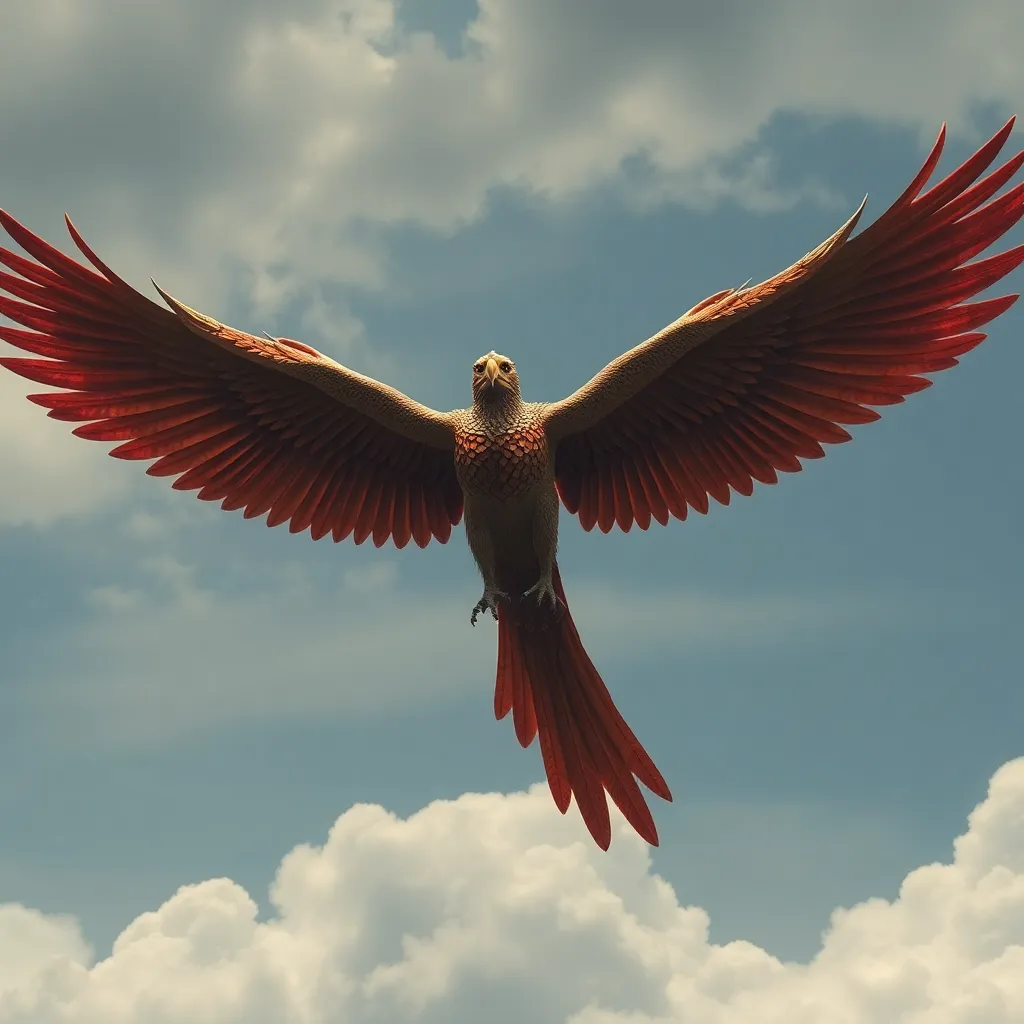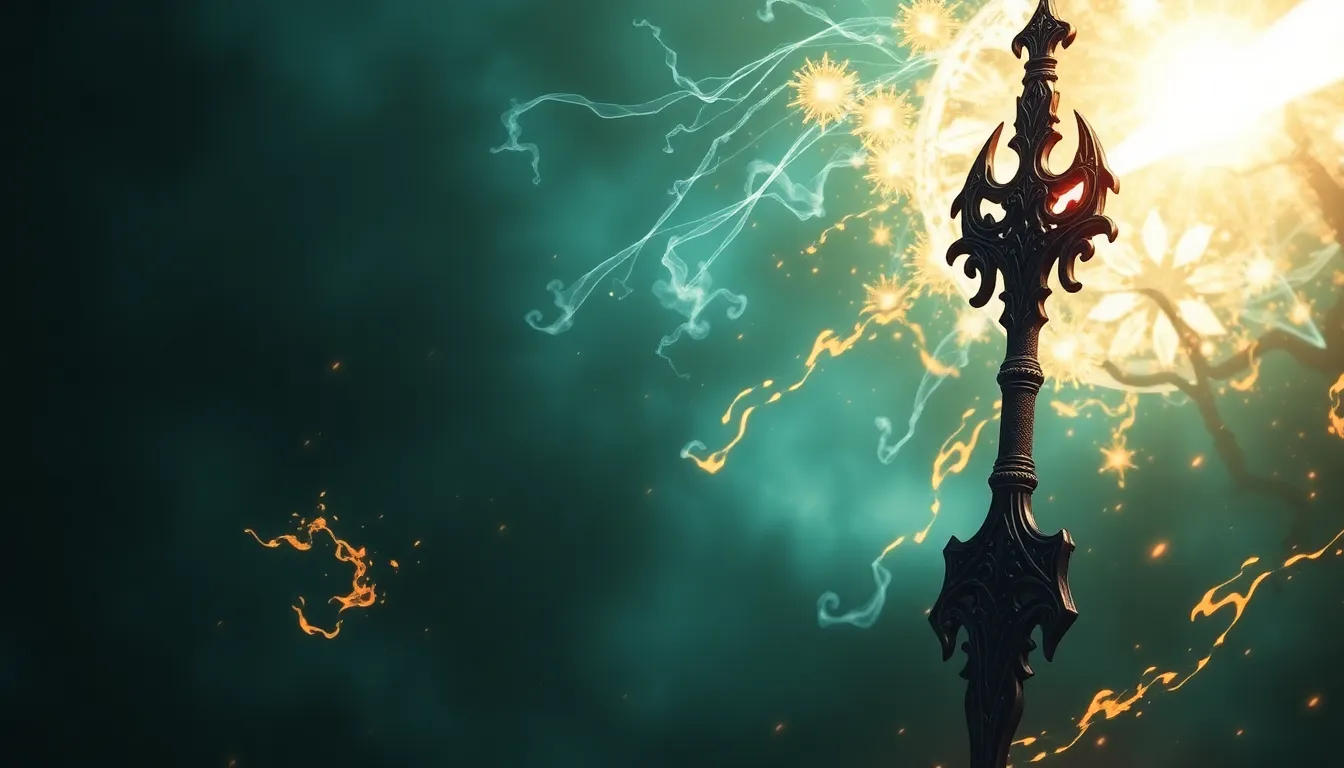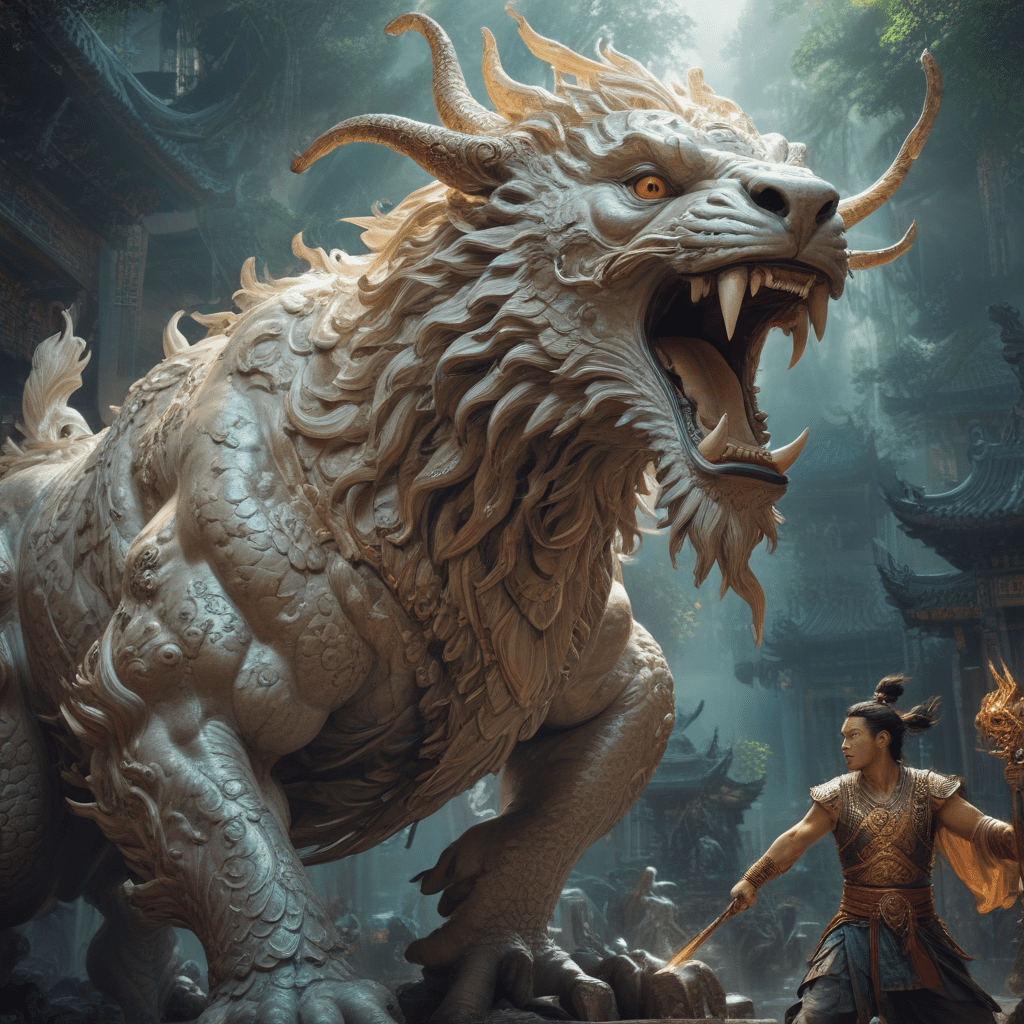Soaring Above the Earth: A Comprehensive Look at Garuda’s Role in Javanese Folklore
I. Introduction
Garuda, a mythical bird-like creature, holds a prominent place in Javanese culture and folklore. As a symbol of strength, loyalty, and speed, Garuda is not merely a fantastical figure but a significant embodiment of national identity and spiritual beliefs. This article aims to explore Garuda’s multifaceted role in Javanese folklore, examining its origins, cultural significance, and contemporary relevance.
II. The Mythical Origins of Garuda
A. Historical background and origins in Hindu mythology
Garuda’s roots can be traced back to Hindu mythology, where he is known as the king of birds and a vehicle for Lord Vishnu. The ancient texts describe him as a powerful creature capable of flying at incredible speeds and possessing immense strength. Garuda’s narrative often intertwines with themes of duty, devotion, and the eternal struggle between good and evil.
B. Garuda’s connection to the gods and its symbolism
In Javanese and broader Hindu beliefs, Garuda serves as a symbol of divine protection. His association with Vishnu emphasizes his role as a protector of dharma (moral order) and a fierce enemy of those who disrupt cosmic balance. The image of Garuda is often used to convey themes of freedom and power, making him a beloved figure across various cultures influenced by Hinduism.
III. Garuda in Javanese Folklore
A. Key stories and legends featuring Garuda
Garuda appears in numerous Javanese legends and stories, each highlighting different aspects of his character. Some of the most notable tales include:
- Garuda and the Elixir of Immortality: In this story, Garuda seeks the nectar of immortality to free his mother from bondage. His journey is filled with challenges that test his resolve and strength.
- Garuda’s Battle with the Serpents: This legendary conflict showcases Garuda’s bravery as he battles the nagas (serpents) to rescue his mother, symbolizing the triumph of good over evil.
B. Analysis of Garuda’s character traits and attributes
Throughout these stories, Garuda is portrayed as:
- Valiant: His courage in the face of insurmountable odds is a recurring theme.
- Devoted: Garuda’s unwavering loyalty to his family and divine duty emphasizes the importance of familial bonds and moral responsibility.
- Wise: Beyond brute strength, Garuda’s intelligence and cunning play significant roles in his victories.
IV. Garuda as a National Symbol
A. The adoption of Garuda in Indonesian national identity
In the modern era, Garuda has transcended its mythological origins to become a national symbol of Indonesia. It represents the spirit of the Indonesian people and reflects their aspirations for unity and strength. The adoption of Garuda as a national emblem in 1950 marked a significant moment in Indonesian history, symbolizing independence and national pride.
B. The significance of Garuda in state emblems and monuments
Garuda is prominently featured in various state emblems, including:
- The national emblem of Indonesia, known as Pancasila, showcases Garuda holding a scroll with the national motto.
- Monuments and public installations across Indonesia celebrate Garuda, reinforcing its role as a national icon.
V. Garuda in Art and Literature
A. Representation of Garuda in traditional Javanese art forms
Garuda’s majestic form has inspired countless artists throughout history. In traditional Javanese art, Garuda is often depicted in:
- Wayang Kulit: Shadow puppetry that illustrates Garuda’s stories and adventures.
- Batiks: Textiles that incorporate Garuda motifs, symbolizing strength and protection.
B. Influence on modern literature and artistic expressions
In modern literature, Garuda continues to inspire authors and poets, serving as a symbol of resilience and cultural pride. Contemporary adaptations in novels and poetry often explore themes of identity, heritage, and the timeless struggle between good and evil.
VI. Garuda in Contemporary Culture
A. Garuda’s presence in popular media and entertainment
Garuda has made significant inroads into popular media, appearing in films, television shows, and animations. These representations often reimagine Garuda’s character, introducing new audiences to Javanese folklore while retaining the essence of his legendary status.
B. The role of Garuda in tourism and cultural heritage
In the realm of tourism, Garuda serves as a powerful symbol of Indonesia’s rich cultural heritage. Tourists are drawn to sites featuring Garuda, such as:
- The Garuda Wisnu Kencana Cultural Park in Bali, which showcases a monumental statue of Garuda and Vishnu.
- Festivals celebrating Garuda, where traditional performances and storytelling bring his tales to life.
VII. Comparative Analysis: Garuda and Other Mythical Creatures
A. Similarities and differences between Garuda and other cultural figures
Garuda shares similarities with other mythical creatures across cultures, such as:
- The Phoenix in Western mythology, which symbolizes rebirth and immortality.
- The Roc in Middle Eastern tales, known for its immense size and strength.
However, differences arise in their cultural significance and narrative roles, with Garuda embodying unique traits tied to Javanese identity and spirituality.
B. The impact of globalization on the perception of Garuda
As globalization spreads, Garuda’s image has been adopted and adapted in various contexts. This raises questions about cultural appropriation and the preservation of traditional narratives. While Garuda remains a potent symbol in Indonesia, its representation in global media may dilute its original meanings.
VIII. Conclusion
Garuda stands as a testament to the enduring legacy of Javanese folklore, embodying cultural values and national identity. From ancient myths to modern representations, Garuda continues to soar above the earth, inspiring generations. As we navigate the complexities of a globalized world, preserving such cultural narratives is vital for maintaining our connection to heritage and fostering mutual respect among diverse cultures.




